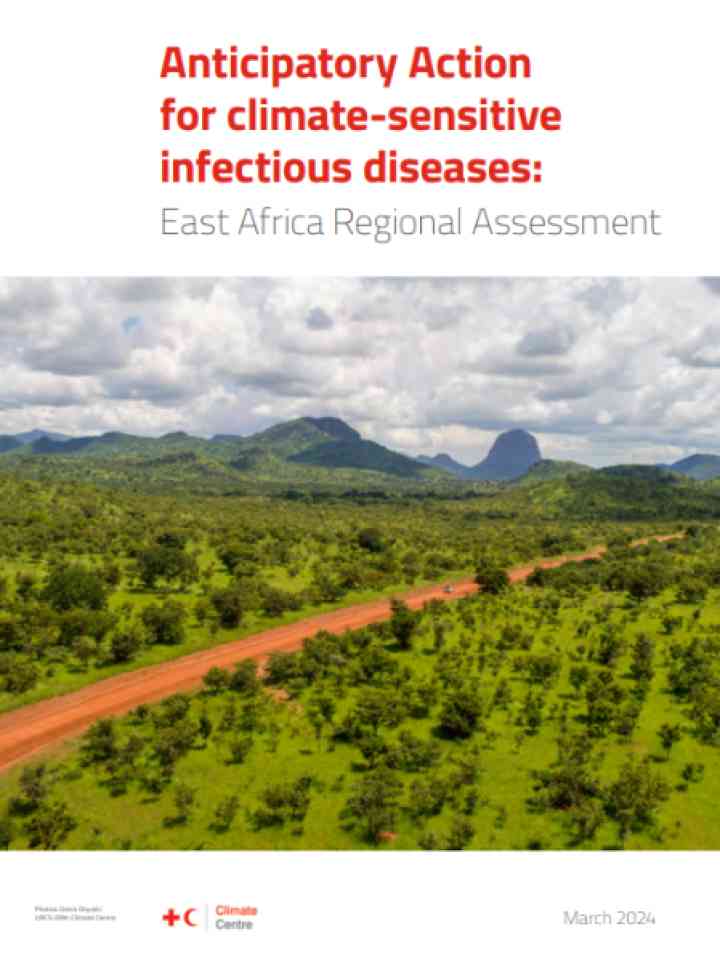Anticipatory action for climate-sensitive infectious diseases: East Africa regional assessment
The East African region is home to approximately 370 million people, with some countries facing significant poverty and vulnerability to climate change. Infectious diseases pose significant health threats, particularly as they are highly sensitive to climatic conditions. Anticipatory Action is emerging as a crucial approach to preventing epidemics of climate-sensitive infectious diseases, offering the potential to implement preventive measures earlier and more effectively reduce disease transmission.
This regional assessment identifies malaria, dengue and cholera as priority diseases, emphasizing the need for prioritized Anticipatory Action for these diseases. The assessment suggests focusing on the development of specific simplified Early Action Protocols (sEAPs) for cholera, malaria and dengue in Ethiopia and Kenya within the next 1–3 years, leveraging these countries’ robust infrastructure, strong health ministries and sufficient climate and disease data. In addition, it recommends National Societies and Partner National Societies advocate for the inclusion of health and water, sanitation and hygiene (WASH) early actions in future or updated hydrometeorological EAPs and sEAPs.
Explore further
